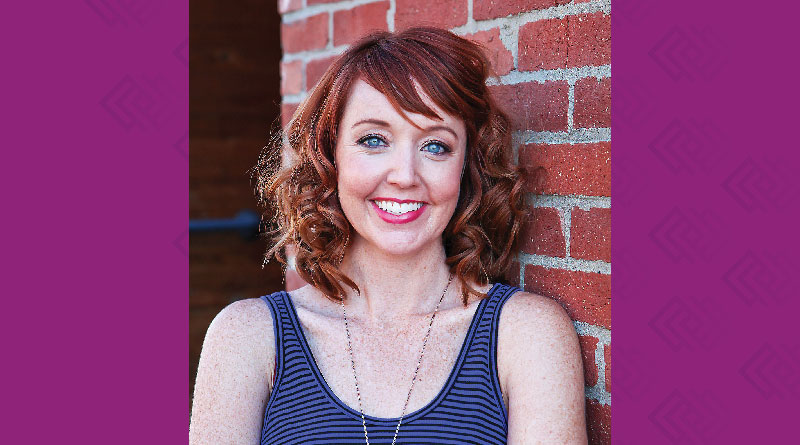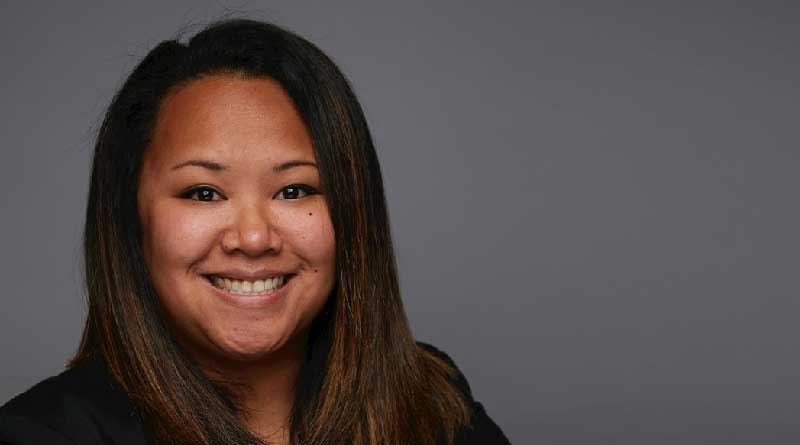Sometimes You Need a Dream Team
People in the travel business need to make sure they’re keeping their customers happy and engaged. Does it take a village? … Or, just a dream team?
Global Connections, Inc. (GCI) – highly respected providers of travel fulfillment services – seems to have hit the sweet spot when comes to making their customers’ vacations run smoothly. Earlier this year, Resort Trades Publisher Sharon Scott Wilson, RRP, had the opportunity of interviewing GCI’s powerhouse troika: Annie Tumlin, David Lesky, and Corina Violette.

SHARON: So, Annie, please explain what the three of you do and how you come up with the ‘dream team’ concept.
ANNIE: I’m GCI’s creative and digital marketing director. David is Strategic Marketing Manager and Corina is Director of Inventory Management. We call ourselves a little dream team, because we have found that working together has enabled us to do some awesome things for our membership and our membership platform.
SHARON: I love it! It makes me think of the 1992 United States men’s Olympic “Dream Team”, which was the first American Olympic team to feature active professional players.
ANNIE: We liked the tightly knit, interdependent aspect of that very idea!
As you’re aware, the pandemic in the past couple of years has been crazy. And especially those of us in the travel industry, we’ve had a lot of unique challenges. It was pretty scary there for a while. So, coming out the other side of it, we wanted to share some of the things that we learned, plus some of the ways we evolved our platform, and communications with members and employees.
Hopefully, we can share a few little nuggets of inspiration to help your readers work through some of the similar challenges that they may be facing, as well.
SHARON: First, I believe our audience might like to know a little bit about your company. Why don’t you give us a bird’s eye view?
ANNIE: Thanks, Sharon. GCI started in 1996, with our current CEO Tom Lyons and his mission to give families the opportunity to travel more, for less. This remains our motto today. And as we’ve adapted over the years to the changing times and needs of travelers, we have offered customizable and competitive components to both partners in the industry, as well as the members that we serve us. And one thing that we all know in our industry is that loyalty is king. Retaining happy members, clients, and employees is, of course, a goal that all businesses share; but especially those of us in the travel and customer service industries. We depend on our members and our customers to maintain our current business and to drive potential new sales through reputation, and referrals.
Related: Who is Global Connections, Inc. (GCI)?
At GCI, we focus on three main components to curating that loyalty. We keep them at the top of any new goal or issue that we face: They are to use innovative thinking, evolved solutions, and transparent communications.
The third tenet has been proven very helpful to our members, our employees, and our company as a whole, especially lately. These three components have worked so well for us, not only for our customers, but for our employees too.
Our oldest membership started in 1985 and has been actively retained throughout our evolution from Network Direct to GCI in 1996, still traveling with us today. Our longest employee has been with us for 36 years, just celebrating her anniversary last month.
We’re a pretty happy family here. We’ve worked even more and in different ways together over the past three years to manage the biggest hurdle that any of us have faced so far in the company. Throughout the extreme challenges of the pandemic, we have created a Little Dream Team, a collaboration between marketing and operations, taking member feedback and putting it into action in ways that we didn’t previously imagine or quite know that we needed.
We hope that by sharing our ideas, you’ll be inspired by how we were able to evolve, not only our staff and our team protocols, but also our membership platform, to meet those extreme challenges.
SHARON: So many companies in the travel space were handed a huge wallop by COVID. David, let me ask you as the marketing person, how did you and your team handle the crisis that caused so many others to faulter?

DAVID: I’ve know for a long time that a problem is often in the eye of the beholder. And so, we looked at the problems as an opportunity to get better…as an opportunity to grow.
I think it’s like Nick Saban, the great football coach from the University of Alabama, always says — if you’re not changing, you’re dying. And so we’re, we’re changing, we’re getting better. There were things that nobody had ever faced before. They forced us to find these new solutions, learn new solutions, adapt to new practices, and really change the way we think.
In many cases, we had to rapidly shift a much bigger workload to a smaller team. That’s difficult in the industry, especially in the travel industry. We also had to figure out a way to take a lot of member feedback, quite a bit of it, and turn it into viable and fast solutions; not just solutions that work, but that work quickly.
Again, we had a choice, it was to get better and evolve or lose. We adopted a more approach by looking to create lasting solutions that were good for everybody. We took that opportunity to really improve our platform and our processes and make everything smoother, easier, better…all those things.
We improved our outreach and communications to our members by becoming more proactive. We bumped up our technology; plus, we developed a two-way feedback system between members and the organization.
We worked on our outreach channels such as member communication, emails, onboarding, general marketing, giving people vacation options and ideas for ways they can travel throughout a pandemic. We worked through our blog, social media, and our booking emails. When somebody books a vacation, they get quite a bit of communication.
We’ve also added an online chat that has given our members an extra opportunity to be able to talk with us. Our goal is to create self-sufficient members who can take back control. Empowering members to be a little more self-sufficient has been really helpful.

SHARON: Corina, I understand you came on board in 2019 – right before the pandemic really hit. Here you were, in charge of inventory management, and all of a sudden, you were dealing with a whole new system of dynamics. How did you work it all out?
CORINA: This led to the development of a member education piece using surveys. We had to make every effort to let them know that their voice is very important to us. Oftentimes if there’s a problem at a resort, we’re not going to know until we hear about it from our members. We try to make it clear that there are all these options available to our members. We explained how things have changed, how we’ve provided additional value for their membership, and what else we’re doing for them.
One of the biggest challenges that I was tasked to do, especially during COVID, was to find other options, find other opportunities. There were a lot of changes within the inventory world. And we had to make sure to communicate with members about them. That transparency was so very important during this time.
Also, just showing empathy, telling them, we know these are challenging times and we’re here. We wanted them to understand their options and to continue to appreciate the value of their membership. To do this, we worked on communications and building relationships.
SHARON: Annie, you mentioned that the three of you had to learn more about what one another did. Perhaps you can explain.
ANNIE: Yes! We had to broaden our vision. For example, in my case being on the marketing team, I knew a lot about how the membership worked, but now I had to learn in much greater detail while I worked closely with individual members. It was like that for each of us; we each had to look at issues from one another’s perspective to solve problems.
It was like a ‘throw you in the fire’ way to train and learn. And by relying on one another, the learning curve brought out a lot of different ideas. Everyone on each team works in a different way. While I might think of an idea from a marketing perspective, Corina might have a great idea from an operations perspective.
I think the biggest lesson we can pass on is to have a team of people available for questions. You don’t have to necessarily have everyone participate in a discussion when a member is on a Chat, but we’ve had people who have been available to answer the questions quickly and accurately and then we’ve been able to pass that along.
SHARON: I think Annie mentioned the longevity of many of your employees. So, GCI must be a very pleasant atmosphere in which to work. Are you all looking for any new employees at this time?
ANNIE: Absolutely! We have several positions open on our website, whether it’s working at a resort or working in our corporate office. [GCI’s corporate office is located in Overland Park, Kansas.]
There are all kinds of opportunities. And it is a great company for employees. When you work here, you are working with people who’ve been here, in many cases, for over two decades. They’re very sharing and are just a great source of knowledge.
SHARON: Annie, Corina, and David, thank you so much for spending time with me today. Our team at Resort Trades – also a dream team we like to think – appreciates you all for sharing about Global Connections. Readers who wish to learn more about the company can visit your website at ExploreGCI.com.



